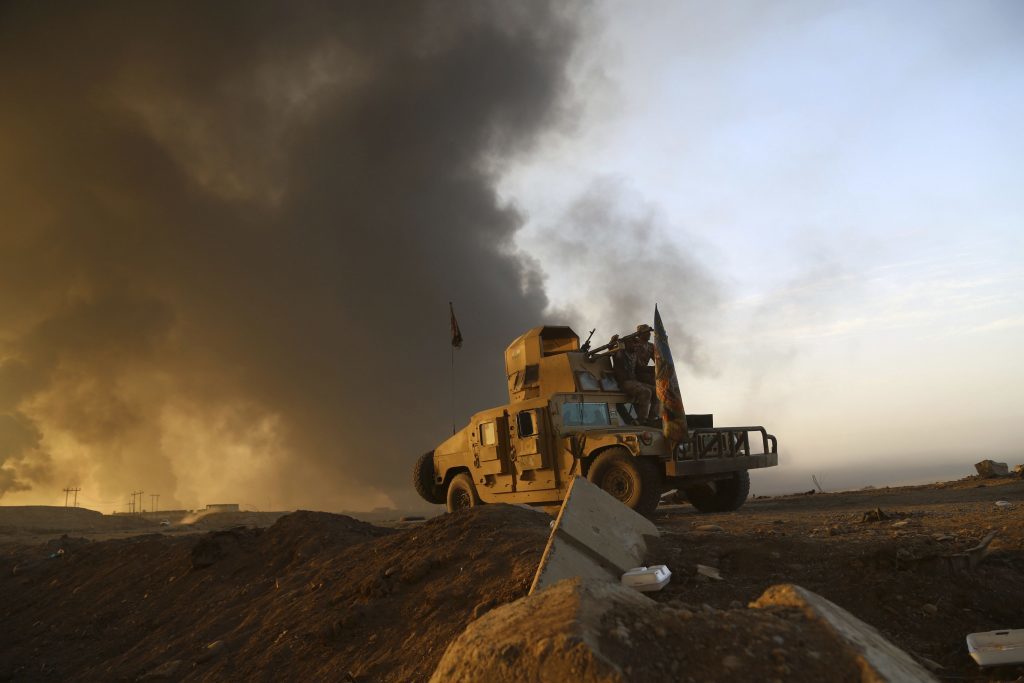
Iraqi and Kurdish forces have launched a new offensive near Mosul as part of a bid to retake the city from Islamic State.
The Kurdish forces, known as peshmerga, said they launched a dawn offensive on two fronts to the north-east of Mosul, near the town of Bashiqa.
Major General Haider Fadhil, of Iraq’s special forces, said they also attacked Bashiqa, surrounding it and seizing parts of the town.
He said the Kurds captured two villages near Bashiqa and a small Shiite shrine in the area.
Over the last week, Iraqi and Kurdish forces have been battling IS in mostly uninhabited towns and villages around Mosul – Iraq’s second largest city – contending with roadside bombs, snipers and suicide truck bombs.
The Mosul offensive involves more than 25,000 Iraqi ground forces as well as US-led coalition aircraft and advisers. It is expected to take weeks, if not months, to drive IS from Mosul, which is home to more than a million civilians.
Bashiqa is close to a military base where some 500 Turkish troops are training Sunni and Kurdish fighters for the Mosul offensive.
The presence of the Turkish troops has angered Iraq, which says it did not gave them permission to enter the country and wants them to withdraw. Turkey has refused, insisting that it play a role in retaking Mosul.
US defence secretary Ash Carter has visited both countries and arrived in the Kurdish regional capital Irbil on Sunday, where he was expected to discuss the issue with Kurdish leader Masoud Barzani.
After meeting Turkey’s leaders, Mr Carter announced an “agreement in principle” for Turkey to have a role in the operation.
But Iraqi prime minister Haider al-Abadi appeared to bat that idea down when he met Mr Carter on Saturday, insisting that Mosul was an “Iraqi battle”.
“I know that the Turks want to participate, we tell them thank you, this is something the Iraqis will handle and the Iraqis will liberate Mosul and the rest of the territories,” he said.
The forces taking part in the Mosul offensive include Iraqi troops, the peshmerga, Sunni tribal fighters and state-sanctioned Shiite militias.
Many fear the operation could heighten tensions between Iraq’s different communities, which are allied against IS but divided over a host of other issues.
That includes the fate of territories near mostly Sunni Mosul that are claimed by the largely autonomous Kurdish region and the central government.